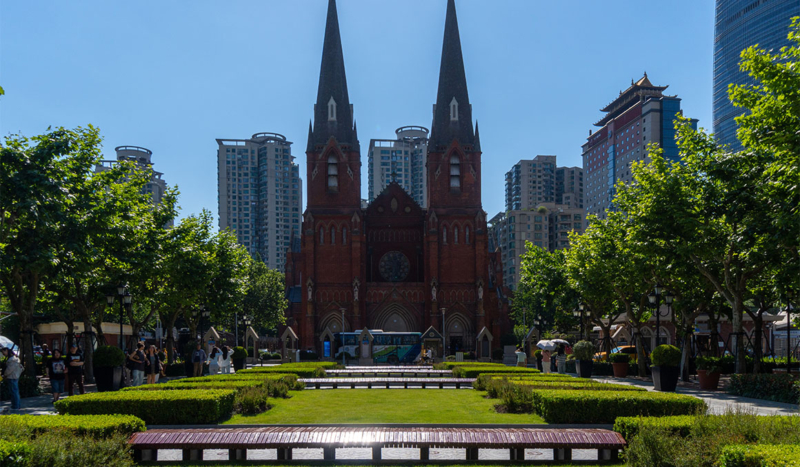
Andrea Aimar / Shutterstock.com
CV NEWS FEED // Even as the universal Church grieves the death of Pope Francis and prepares for the conclave to elect his successor, Chinese authorities are moving forward with episcopal appointments, signaling their determination to operate independently of Rome.
In the Diocese of Shanghai, Father Wu Jianlin was confirmed April 28 as auxiliary bishop, AsiaNews reported. The next day, officials in the Diocese of Xinxiang chose Father Li Janlin for the same role. Both selections were made through a state-managed process involving only a single candidate — an approach Beijing continues to use despite its 2018 agreement with the Vatican on episcopal appointments.
The controversial agreement, renewed in 2024, lets the Chinese government propose bishop candidates, with final approval left to the pope. While Rome frames it as a step toward unity, critics say it gives the Communist Party too much control and leaves faithful clergy vulnerable to state pressure.
Though these recent elections may have been planned before the pope’s death, the timing is striking. According to AsiaNews, the decisions reflect a clear message from the Chinese Communist Party: the sede vacante, the period where the papal office is vacant, is irrelevant to the Church in China.
Fr. Jianlin’s elevation consolidates the influence of Bishop Shen Bin in Shanghai, a bishop installed by Beijing and only later approved by Pope Francis “for the good of the diocese.”
In Xinxiang, the Holy See recognizes underground Bishop Joseph Zhang Weizhu, who has been repeatedly detained by authorities for ministering without state approval. Fr. Janlin, appointed by Chinese authorities, is known for having supported state policies that barred minors from attending Mass.
The contrast between China’s actions and the wider Church’s mourning is hard to miss. China notably refused to send a delegation to Pope Francis’ funeral. According to AsiaNews, a brief condolence message posted by China’s Patriotic Association was quickly removed — and replaced by updates on Communist Party meetings and plans to “Sinicize” Catholicism.
AsiaNews suggests these new appointments are not just routine but strategic; they are designed to test how the next pope will respond to China’s assertion of control over episcopal appointments. The conclave to elect Pope Francis’ successor is set to begin in one week, and the Holy See’s approach to Beijing will be among the many challenges the new pontiff will inherit.

